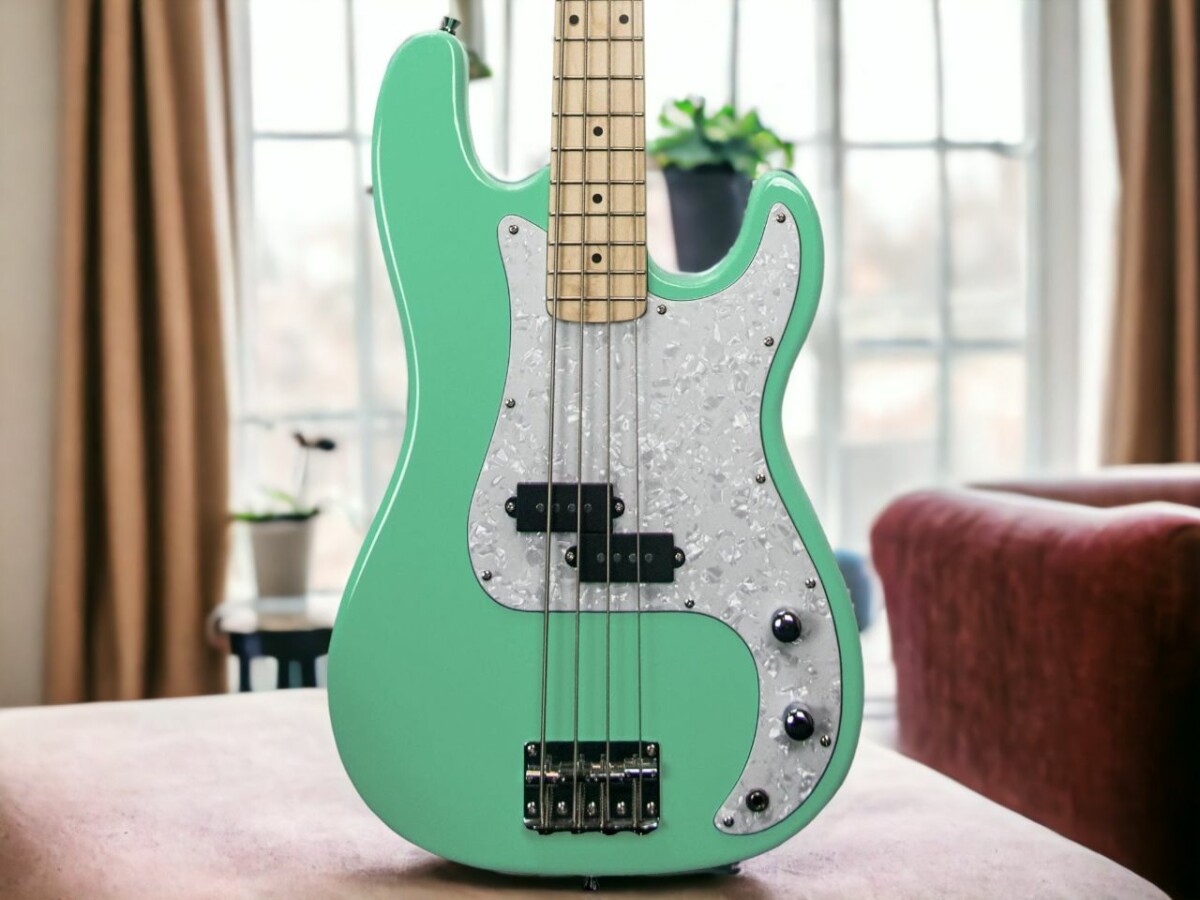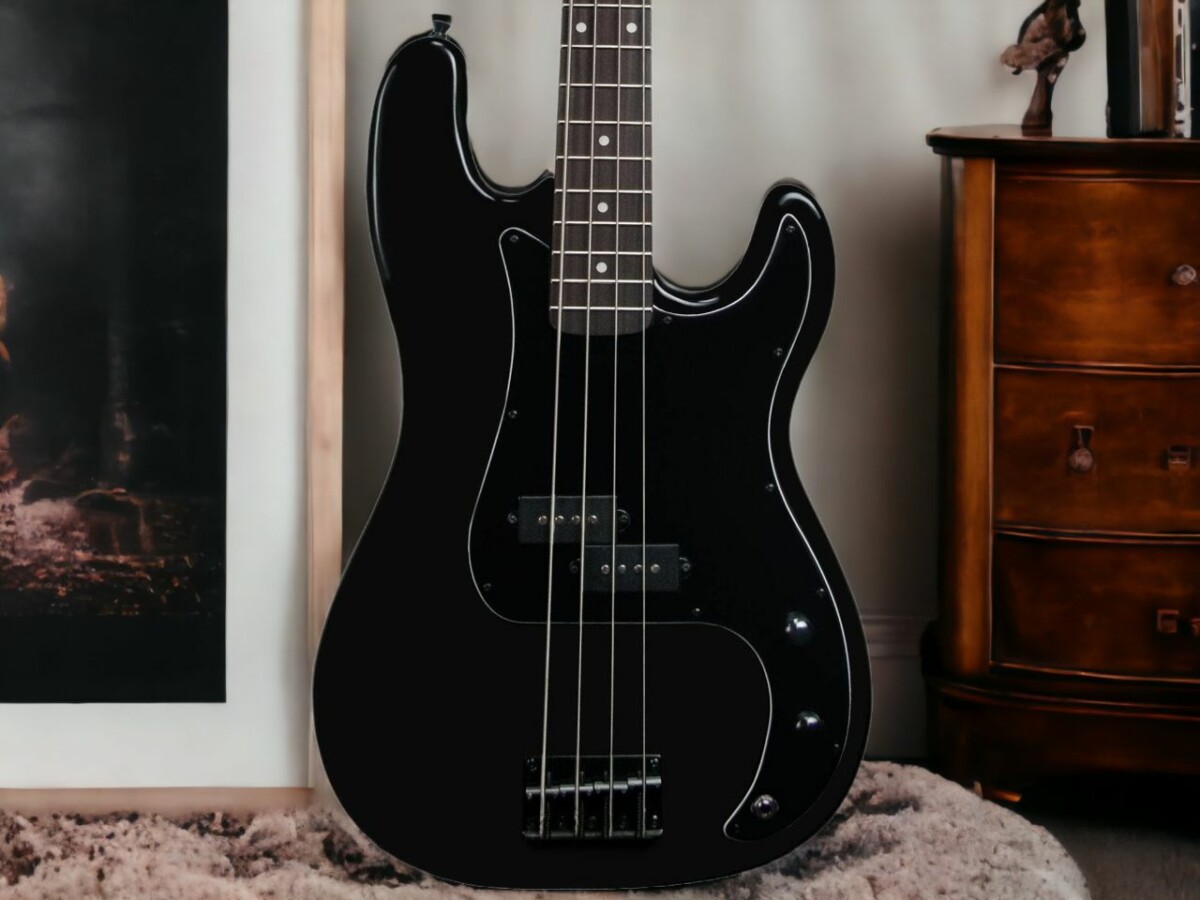So, you’re jamming on your bass guitar, but something just doesn’t feel right. Could your strings be to blame?
Surprisingly, a whopping 80% of musicians don’t replace their strings as frequently as they should. And trust me, this has a massive impact on your sound.
Whether you’re all about that crisp, fresh-string vibe or you’re into the laid-back, matured tone, knowing when to switch out your strings is key.
So, let’s dive in and decode the perfect timing to change your bass guitar strings.
Determining the Right Time to Change Your Bass Guitar Strings
If you’re jamming on your bass guitar regularly, you’ll want to switch out those strings roughly every 3 to 6 months. This isn’t a hard and fast rule, though, as it can depend on how you play, where you’re playing, and the particular sound you’re after. So, keep these factors in mind when you’re timing your next string change!
For instance, the weight of your bass guitar can influence how it sounds and feels when played. If you’re curious, you can check out this article on whether bass guitars are heavy or not. Keep these factors in mind when you’re timing your next string change!
When it comes to changing your bass guitar strings, there’s no one-size-fits-all answer. It’s a blend of several things including your personal playing style, the type of strings you’re using and, of course, your own vibe. Keep an eye on your strings, and if they start sounding dull or if they’re giving you a hard time staying in tune, then it might be time to give them a switch.
But hold up, don’t be too hasty to ditch those old strings. There’s something to be said about the rich, chill vibe that old strings bring to the table. They might just be the secret sauce you need for that mellow, laid-back sound that’s perfect for some music styles.
When it comes down to it, it’s all about striking the right balance. On one hand, you’ve got the crisp, lively sound that new strings bring. On the other, there’s the distinct personality that only comes with time. It’s about knowing what you want your music to sound like, and using that to guide your decision.
How Playing Style Influences String Longevity
Just so you know, the way you groove on your bass guitar can actually impact the life of your strings. Whether you’re into mellow jazz or hardcore rock, it all plays a part in how often you’ll be needing a string change. And speaking of bass guitars, have you ever wondered about the quality of different brands? For example, some people often ask, are Epiphone bass guitars any good?
- Gritty Genres: If you’re into heavier stuff like punk or metal, you’re probably going to find your strings giving out a little quicker. These styles are tough on the strings, so you’ll be looking at swapping them out more often.
- Weather Woes: The weather where you’re jamming also plays a big role in how long your strings last. If you’re in a really humid spot, your strings might start to corrode quicker, cutting short their lifespan.
- Care and Keep: A regular clean-up and storing your bass right can help fight off the factors that speed up string corrosion, giving them a longer life.
String Type and Frequency of Change
You know what? The kind of strings you pick for your bass guitar really plays a big role in how often you’ll be swapping them out. Take coated bass strings for example – they’ve got their ups and downs. The main perk they’ve got going for them is that they last longer. The coating shields them from corrosion, which means they hang around for longer. On the flip side, they’re a bit on the expensive side and their sound just doesn’t have the same vibrant, punchy vibe as uncoated strings.
Now, here’s something you mightn’t have thought about – your local weather can also mess with your bass string lifespan. If you’re living somewhere humid, you’ll find yourself changing your strings more often since corrosion speeds up. But if you’re in a dry climate, chances are they’ll stick around for a bit longer.
Cleaning and Maintenance Methods for Bass Guitar Strings
When it comes to taking care of your bass guitar, knowing how to clean and maintain your strings is key. Show them some love and they’ll reward you with a stellar sound and a longer lifespan. Just as you’d pick a brand of bass guitar after knowing its quality, like checking if Fender bass guitars are good, you need to be equally diligent with your string maintenance. Here’s the lowdown on three cleaning hacks:
- Post-Play Wipe Down: It’s as straightforward as it sounds. Grab a clean cloth and wipe off all that sweat, oil, and grime after each jam session.
- String Cleaners are Your Friends: There are products out there specifically designed to clean and lubricate your strings. They do wonders in getting rid of build-up and bringing back that shiny new-string look.
- Give Your Strings a Hot Bath: You read that right. Every once in a while, boiling your strings can bring them back to life and restore their bright tone.
Maintaining your strings regularly has more perks than you might think: it keeps your sound sharp, extends the strings’ life and saves you some cash. Just remember, a well-kept bass guitar is a happy bass guitar.
The Impact of String Gauge and Material on String Lifespan
Listen up, folks! The lifespan of your guitar strings isn’t just about how hard or how often you’re rocking out. It’s also about the gauge and material of your strings.
Now, let’s break it down real quick. The gauge of your strings is just a fancy term for their thickness. Thicker strings, or heavy gauge, give you a richer, fuller sound. But, here’s the catch, they tend to bite the dust faster than their thinner counterparts. Why, you ask? Well, they’re under more tension, which means they wear out quicker. So, it’s all about finding that sweet balance – you don’t want to crank them too tight and end up with dead strings in no time.
Now, moving onto the material. Like, did you know steel strings rust quicker than nickel ones? True story. So, if you’re all about that long string life, you might want to look into coated strings. These bad boys are designed to resist sweat and all the nasty stuff that can shorten your strings’ life. Yeah, it’s not just some marketing BS, coated strings really do last longer. They’re pretty much a game changer when it comes to string longevity.




